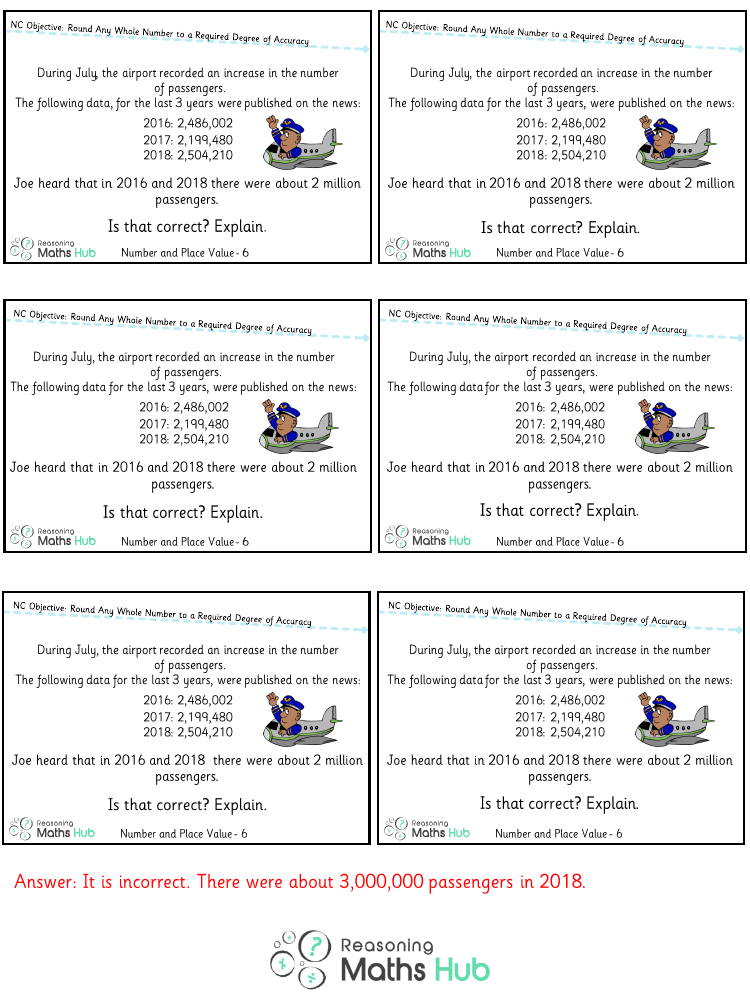Round Any Whole Number to a Required Degree of Accuracy 9 - Reasoning

Maths Resource Description
The concept of rounding whole numbers to a required degree of accuracy is an essential mathematical skill, particularly when it comes to simplifying figures for ease of understanding or to meet specific criteria. When we round numbers, we adjust them to the nearest value based on the given level of accuracy, which could be to the nearest ten, hundred, thousand, or any other specified place value. This process involves looking at the digits of the number and determining whether to round up or down. For instance, if the digit in the place value to the right of the one we're rounding to is five or greater, we round up. If it's less than five, we round down.
Rounding is not just about getting a 'neater' number; it's also a reasoning skill that requires understanding the significance of each digit in a number. In practical situations, such as estimating costs or distances, rounding provides a quick and efficient way to work with numbers that are easier to handle mentally. It is important for students to practice this skill to gain confidence and accuracy. Reasoning questions in this area might involve explaining the rounding process, determining the effect of rounding on subsequent calculations, or identifying scenarios where rounding to a particular degree of accuracy is necessary or useful.